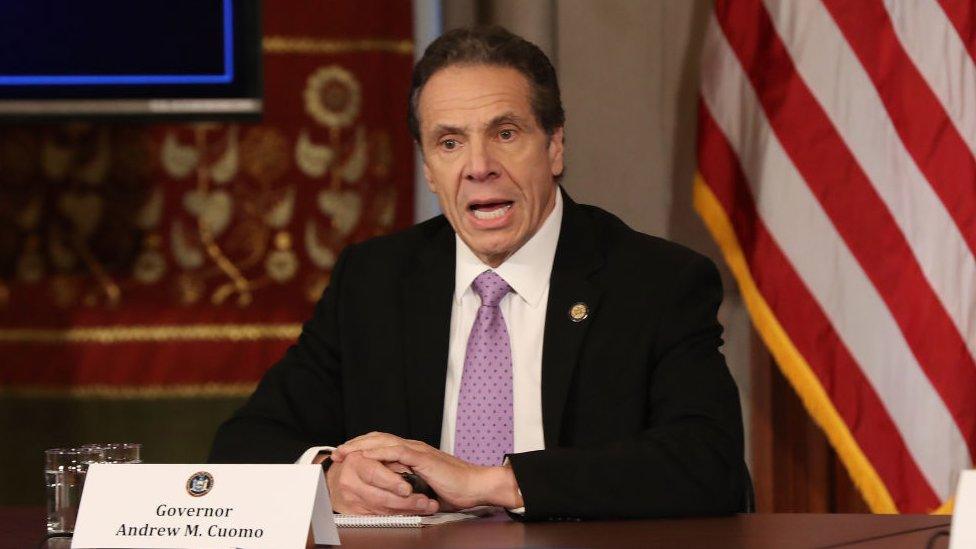Andrew Cuomo: 'I never touched anyone inappropriately'
- Published
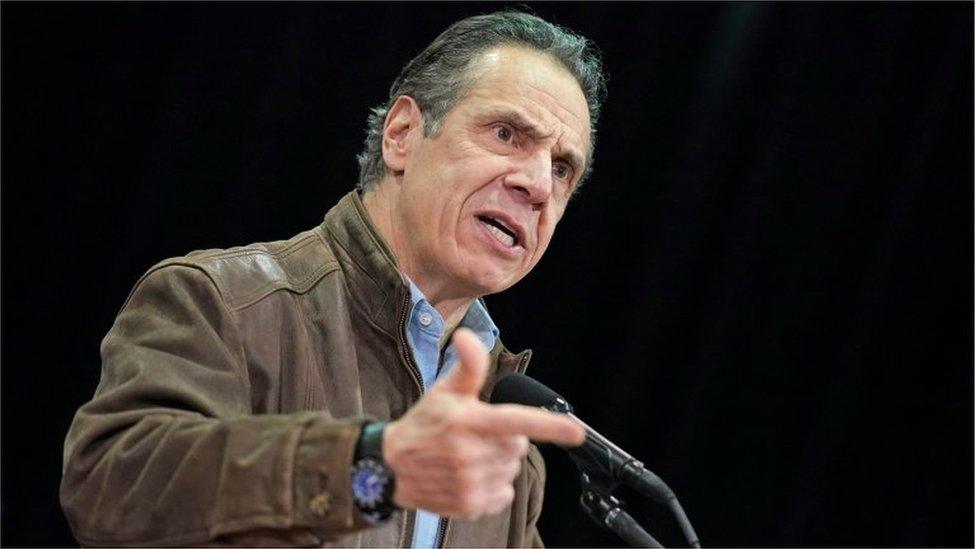
The New York Governor has said he is "so sorry" for making women uncomfortable but denied touching anyone inappropriately.
Three women have recently come forward with accusations of sexual harassment against Democrat Andrew Cuomo.
In his first public comments on the allegations, Mr Cuomo said he felt "embarrassed" that his actions made the women feel uncomfortable at work.
Mr Cuomo asked the public to wait for the "facts" before drawing conclusions.
The New York attorney general has opened an investigation into the allegations and will file a report on the findings.
The governor said he would not resign, despite calls from within his own party for him to step down.
What is Cuomo accused of?
A former top-level aide to Mr Cuomo, Lindsey Boylan, claimed the governor touched her without consent and frequently made inappropriate comments about her appearance.
In an essay published last month, Ms Boylan accused Mr Cuomo of kissing her on the lips and asking her to play strip poker while on his private jet.
A second former aide, Charlotte Bennett, told the New York Times that the governor peppered her with personal questions that were clear overtures to a sexual relationship.
"I understood the governor wanted to sleep with me," she said.
In a statement following Mr Cuomo's press conference, Ms Bennett's lawyer described the governor's statement as "full of falsehoods and inaccurate information".
Debra Katz disputed Mr Cuomo's claim that he was unaware he had made any of the women uncomfortable, saying Ms Bennett reported the "sexually harassing behaviour immediately" to the governor's chief of staff and chief counsel. "We are confident that they made him aware of her complaint", Ms Katz said.
A third woman, photographer Anna Ruch, said the politician touched her face and asked to kiss her at a wedding. The exchange was captured on camera.

A #MeToo moment for Democrats
Analysis - Nada Tawfik, BBC News, New York
When asked what assurances Mr Cuomo could give that there weren't more women who would lodge complaints, he didn't really answer directly, instead repeating that he never intended to make anyone feel uncomfortable.
But that is a question probably weighing heavily on Democrats who, having taken a strict view of these kinds of allegations in the past, are now facing their own #metoo test in relation to one of the biggest stars in the party.
Mr Cuomo had been praised and admired globally for his response to the pandemic and his daily informative briefings. Now he's being cast in a different light and many are questioning his authenticity.
Not only is he facing an investigation into sexual harassment claims by the NY Attorney General's office, but also a federal investigation into how he handled data on nursing home deaths, undercounting the true toll.
Now that his Covid response doesn't look so sterling, and more women are coming forward, the political future of this three-term governor in the Democratic party may be in peril.

What did Mr Cuomo say in his apology?
Mr Cuomo has been widely criticised for not yet addressing the allegations publicly.
After calls for his resignation intensified earlier this week, he used the end of Wednesday's coronavirus press conference to address them.
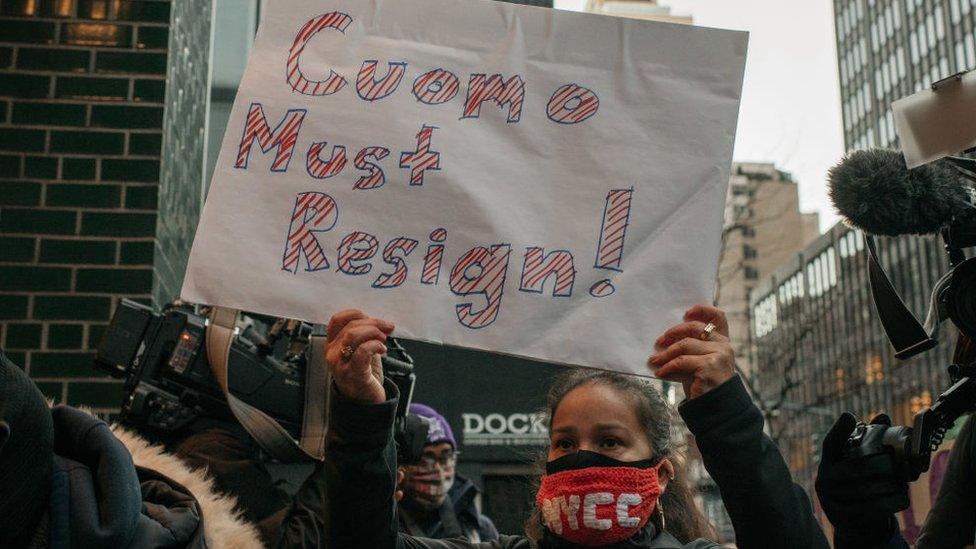
He said that hugging and kissing people was his "customary way of greeting" people, something he learned from his father, former New York governor Mario Cuomo.
But he acknowledged times had changed and he had "learned an important lesson".
"It doesn't matter my intent. If the women were offended by it then it was wrong. If they were hurt by it, I apologise."
"I fully support a woman's right to come forward. And I think it should be encouraged in every way," Mr Cuomo continued.
But "wait for the facts before you form an opinion", he urged.
What other political problems does the governor face?
The mounting scrutiny on the governor follows Mr Cuomo's admission that he made a "mistake" in withholding data about Covid-19 nursing home deaths in the state.
An inquiry by the state's attorney general found a dramatic discrepancy between reported deaths and the official tally.
More than 15,000 New Yorkers in care homes have died since the start of the pandemic, the highest in the country. But until late January the state's health department had logged just over 8,500 fatalities.
Related topics
- Published2 March 2021
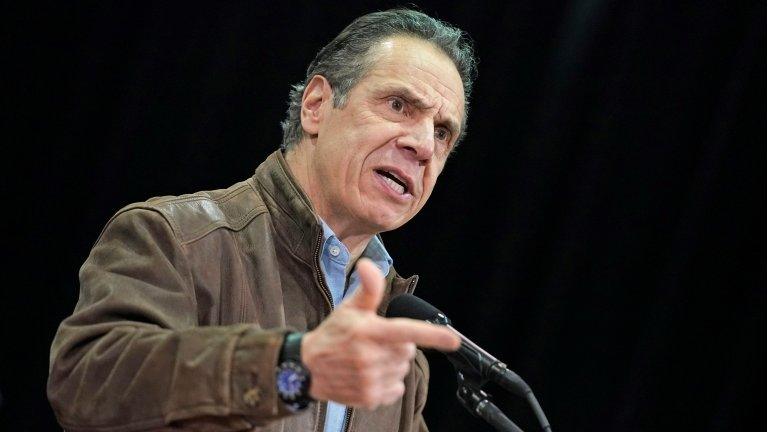
- Published25 February 2021
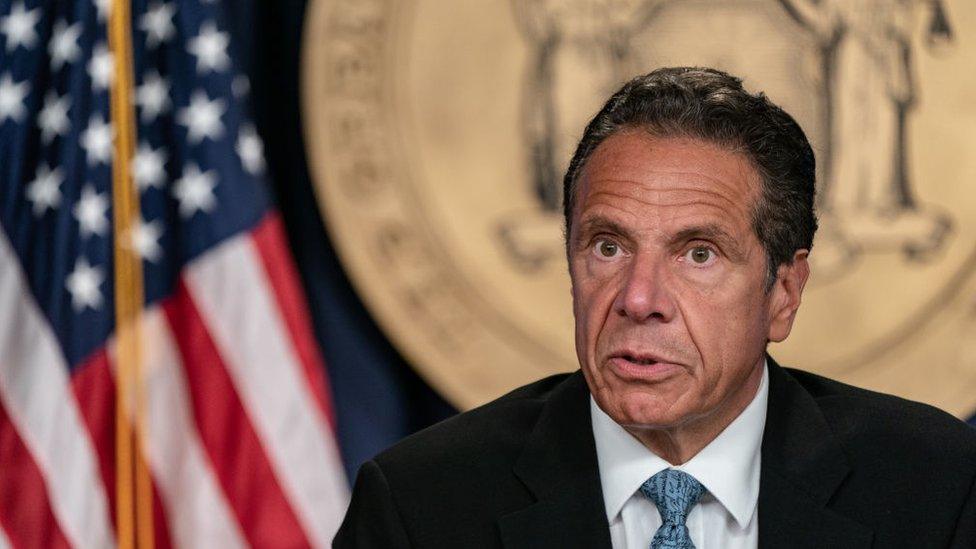
- Published16 February 2021
